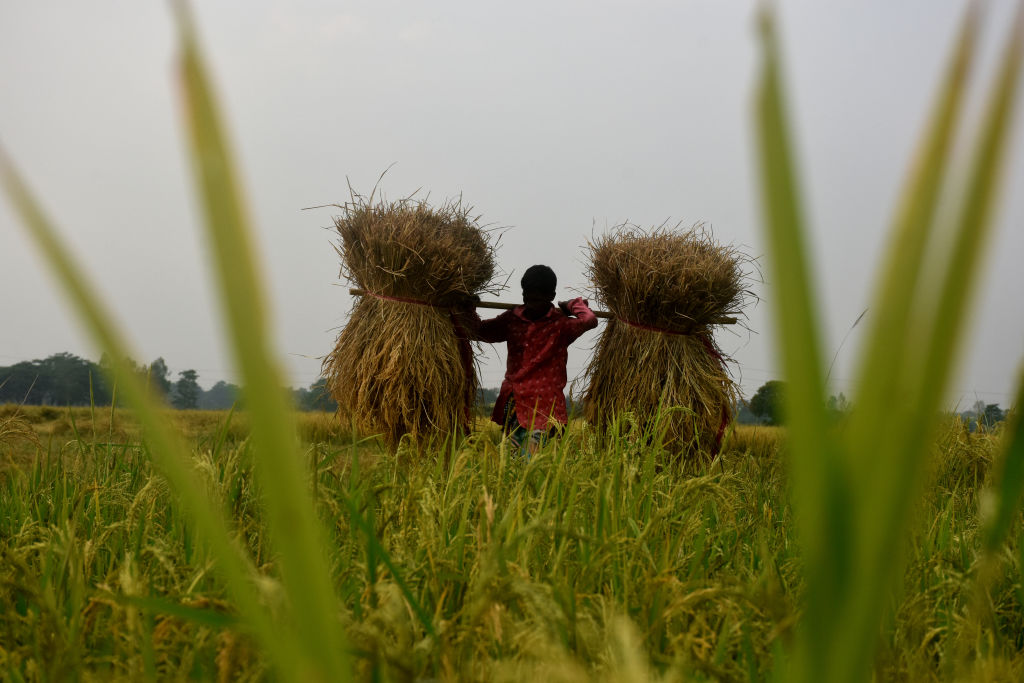
Planet A
Bangladesh has secured US$500 million from the World Bank to strengthen climate-resilient agricultural practices and enhance food security. The program aims to assist Bangladesh to revolutionise its agriculture sector by promoting crop diversification, food safety and climate resilience. Ultimately, the initiative hopes to help Bangladesh meet its goal of achieving upper-middle-income status by 2031.
The funding will support sustainable food production by improving agricultural efficiency and promoting stress-tolerant and nutrient-dense crop varieties. The program will also expand access to digital agricultural services, improve food-safety processes and facilitate female and youth entrepreneurship. Other areas of emphasis include modernising and enhancing data management, supporting research and development activities, and facilitating collaboration with global agricultural research institutions and the private sector.
The financing agreement has a 30-year term and includes a five-year grace period. The International Fund for Agricultural Development will co-finance the initiative, providing US$43 million.
Democracy watch
Judges at the International Residual Mechanism for Criminal Tribunals determined that Felicien Kabuga, facing trial for crimes allegedly committed during the 1994 Rwandan genocide in which over 800,000 civilians were killed, was unfit to meaningfully participate in the trial. Kabuga, now 90 years old and suffering from dementia, was charged with genocide, incitement to commit genocide, conspiracy to commit genocide and crimes against humanity.
The court reportedly intends to proceed with an alternative finding procedure—essentially a trial to determine the facts of the case without pursuing a conviction. Kabuga had been in hiding for almost 30 years, and finally appeared before the Residual Mechanism in 2020 after being arrested in Paris.
These developments reveal a key issue in international justice—that it is often too little, too late. It also reiterates the mixed achievements of international justice mechanisms so far. The International Criminal Tribunal for Rwanda convicted 62 of the 93 high-level perpetrators it indicted, but it also cost more than US$1 billion. And almost 30 years since the genocide, numerous suspects still evade justice. Overall, the court’s success in dispensing justice remains questionable.
Information operations
The US is actively collaborating with its allies to combat the violation of ‘information space integrity’ on a global scale, as disclosed by a senior State Department official. In an effort to effectively counter Russian disinformation, the US has entered into a memorandum of understanding with North Macedonia and aims to establish similar agreements with Bulgaria and Slovakia. The significance of this policy was highlighted in the lead-up to Montenegro’s early parliamentary elections, during which the country faced a barrage of Russian-influenced disinformation and propaganda, primarily originating from Serbia.
The goal of the agreements is to empower partner countries by equipping them with the necessary tools and best practices to expose covert manipulation and ensure the transparent and accountable dissemination of information.
While the State Department’s Global Engagement Center doesn’t use artificial intelligence tools to counter foreign disinformation, ongoing discussions are exploring the potential implications of AI for US policy in this area.
Follow the money
The UK government has implemented new sanctions against Belarus in response to its support for Russia’s invasion of Ukraine. The measures went into effect immediately and include an import ban on gold, cement, wood and rubber, which are key revenue sources for the Belarusian regime.
Last year, the EU and the UK imposed sanctions on Belarus for its role in aiding Russia’s war efforts, resulting in significant economic damage. However, differences between the two sets of sanctions enabled some trade between Russia and Belarus to persist. The latest round of UK sanctions aims to close the loopholes and further restrict Belarus’s access to UK financial markets to limit its capacity to raise funds.
This package builds on previous measures targeting President Alexander Lukashenko, including travel bans, asset freezes and exports restrictions. By aligning its sanctions with the EU’s, the UK will help restrain Belarus’s foreign exchange income and thwart attempts to circumvent sanctions.
Terror byte
Last week, China, Pakistan and Iran conducted their first trilateral meeting on counterterrorism and regional security in Beijing. The meeting concluded with a decision to institutionalise these trilateral consultations. Discussions took place against the backdrop of overlapping terrorist threats facing the three countries, rooted in broader regional instability.
Low-level but persistent insurgency in Balochistan, a province in Pakistan’s southwest that is rich in natural resources and borders Iran, poses a key obstacle to the multibillion-dollar China–Pakistan Economic Corridor. Pakistan accuses Iran of providing sanctuary to Baloch insurgents who oppose the project and have carried out deadly attacks against Chinese officials in the past. Meanwhile, Iran has claimed that Islamabad isn’t reining in cross-border terrorism.
The three countries are also closely watching how instability in neighbouring Afghanistan affects terrorism within their borders, including through the strengthening of groups such as the Tehreek-e-Taliban Pakistan, the East Turkistan Islamic Movement in China and the Islamic State Khorasan.

